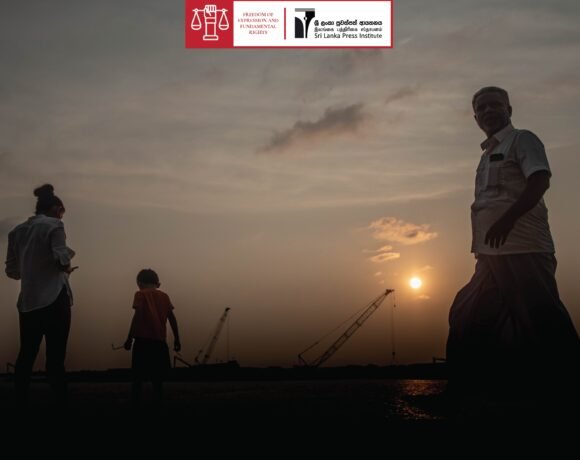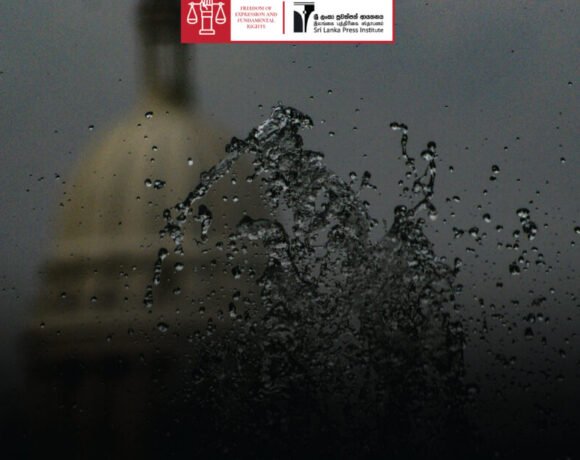Sachini D. Perera
There are many underlying and on-going social incidents that are not visible to the human eye and consciousness. The role of the media is to raise awareness about the impact of these activities and incidents in order to prevent negative social consequences. The media tends to codify the reality of such events in the same way, i.e. to catch the limelight when revealing the truth. Mass recipients of such news also have a keen interest to watch these media broadcasts, which capture and exploit those involved in hidden social practices by using secret/hidden filming or recordings. On the other hand, the impact of hidden camera reporting on the privacy of those caught on camera and the question of media ethics and democracy of journalism are debatable. But secret filming or recording has contributed to revealing the truth so that necessary legal actions can be taken against negative behaviours or crimes by way of investigative journalism.
Privacy is a fundamental human right guaranteed under the Universal Declaration of Human Rights. On the other hand, the right to information is at odds with these privacy rights. Spy cameras capture data without selectivity or subjectivity. It is sometimes used under democratic media policies or to accomplish commercial purposes. The use of spy or CCTV camera equipment was first used as a technical tool to ensure the security of companies and the security of their goods.
“It’s not a toy. Hidden cameras are a very important journalistic tool and should not be taken lightly.” – Lourie Few (Global’s 16×9 Investigative Show)
The purpose of using secret cameras in journalism is to track the truth, reveal the truth, educate the public about risky social events, and reveal the real traits and natural reactions associated with the relevant social events which are captured from the camera lens or audio equipment. Journalists working in investigative reporting at media organizations such as CBC, Global News, CTV are legally permitted to use spy cameras, and since it is a legitimate tool that only they can use, they and their media organizations hold the responsibility to the aftermath of what the public is exposed to.
“CIA” program on Hiru TV news broadcast and “Ukussa” program on TV Derana news broadcast have been engaged in investigative reporting in Sri Lanka so far through secret filming and recording. These two investigative programs do a great service to guide society in the right direction and to give a red light to those who do such evil deeds. During this social welfare service, it is sometimes necessary to reveal information about different areas, different institutions, different people in order to show the truth to the society and save other people from getting caught in such incidents. Due to the confidentiality of the information of certain individuals (especially children under the age of 18, unmarried youth, victims of abuse, celebrities, etc.), these social service programs also face severe difficulties and do a fierce struggle in dealing with human rights, media ethics, culture and social ethics.
For example, in the Hiru CIA program, a 63 – year – old woman gambled on a weekend at a mixed school in the Ja-Ela area, conversing with those schooling children with obscene words was broadcasted on January 28, 2019, during the Hiru news broadcast. From the relevant video footages, you can easily identify this mixed school in Ja-Ela without mentioning the name. Due to this, the entire school would be inconvenienced and the telecast of this incident would have been a great help to the school administration and security forces to prevent this from happening again. But the extent to which it has been practical remains to be seen. Due to this, a problem has arisen regarding the responsibility of the teachers’ staff including the principal. The broadcast of the incident revealed the true nature of the school, but the respect for the school continues to erode among the children and their parents. However, if it is not reported even in this way, it can be considered that the media has neglected its responsibility. This is a very complicated situation. (Visual Source: https://www.youtube.com/watch?v=-FGAuHcAS-Q)
On December 25, 2017, TV Derana Ukussa hidden camera program was able to secretly record and report on a sand smuggling incident that took place in the Tissamaharama area. For this purpose, several youngsters were seen working together in sand mining with the intention of earning a daily income for themselves. As they have no source of income, the people living along the eroded rivers in the Tissamaharama area are also facing severe difficulties due to this sand smuggling. Both the youths who are being used for racketeering and the villagers who live near the rivers due to the erosion caused by the racket are facing economic problems. Exposing the privacy of such helpless youth to the media may also prevent them from gaining access to another job in the future. But if such things are not reported, it poses a threat to the environment and the villagers, as well as to the media as a violation of their role. It is also complex humanitarian duel combat. (Visual Source: https://www.youtube.com/watch?v=qHfWnhfVquM)
Investigative reporting which accompanied with secret filming or recording is a key to effectively interrogate our society’s unbalanced existence. Midst this role of media, the explanations regarding free press, right to information, human privacy rights are batteling to shape a better big picture that directly affects social affairs, public discourses, reputation and economy.
The secret filming or recording details must be assessed in two processes: The secret film or record must be editorially justified or infringement in broadcasting by the responsible personnel in order to reflect its transparency issues. Those stories should be carefully narrated and presented in an ethical manner which should convince an alarming message for the public. Also, the infringement of privacy must be assured before broadcasting as by blurring the faces and must blur or trim the inappropriate actions or behaviours which should not be imitated by children especially.








